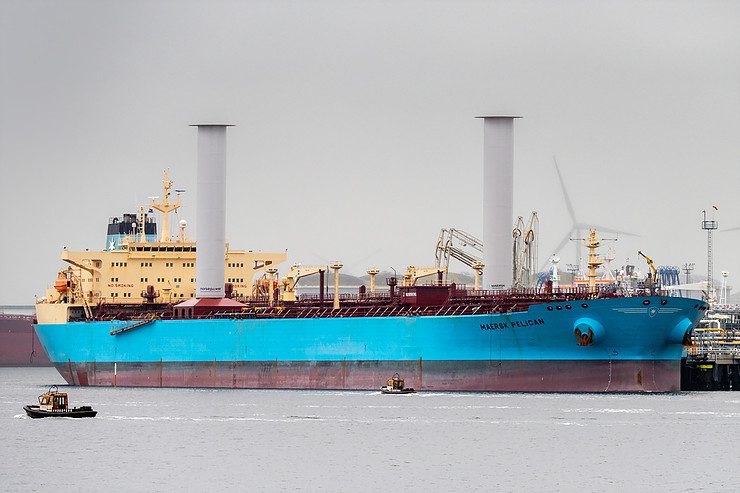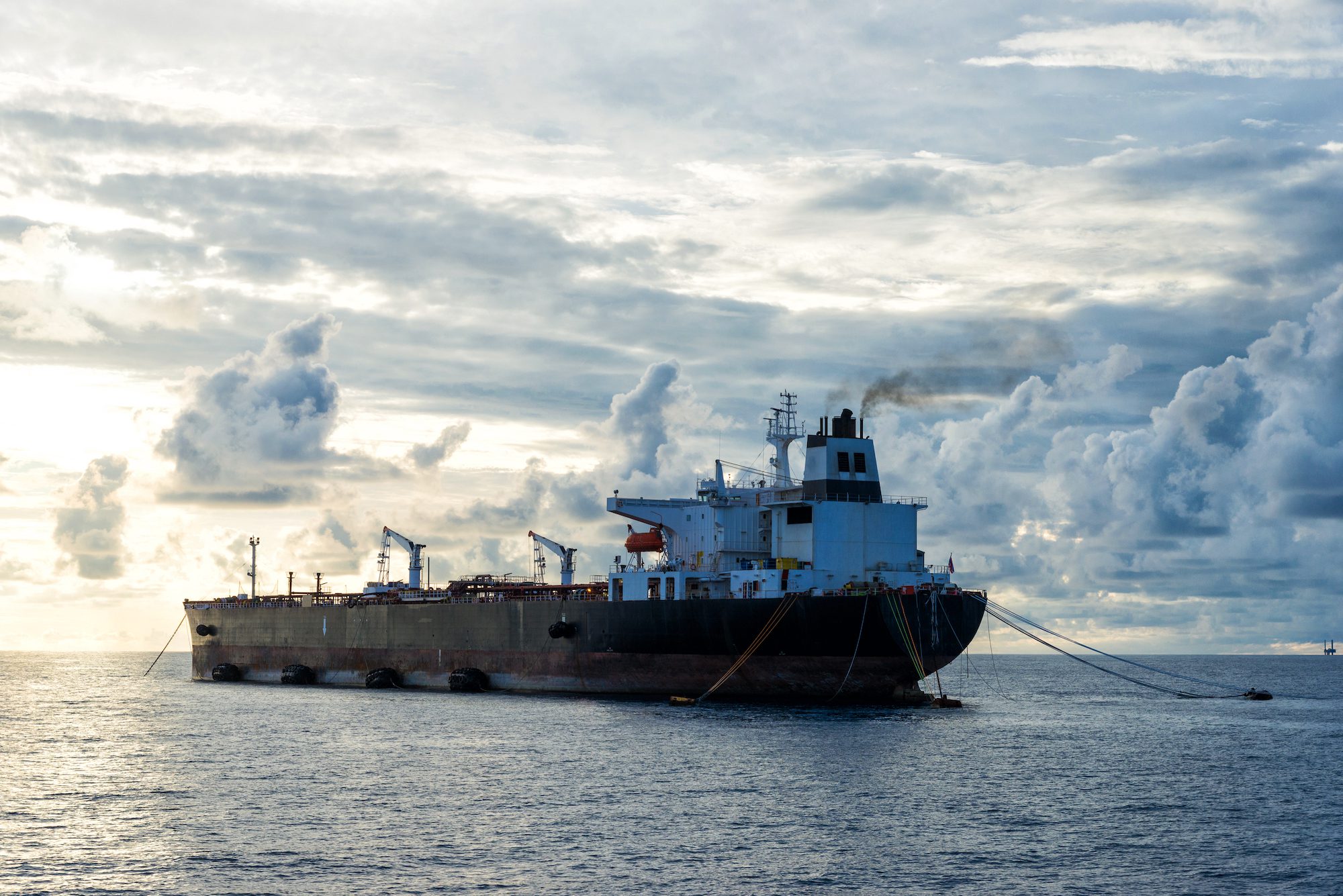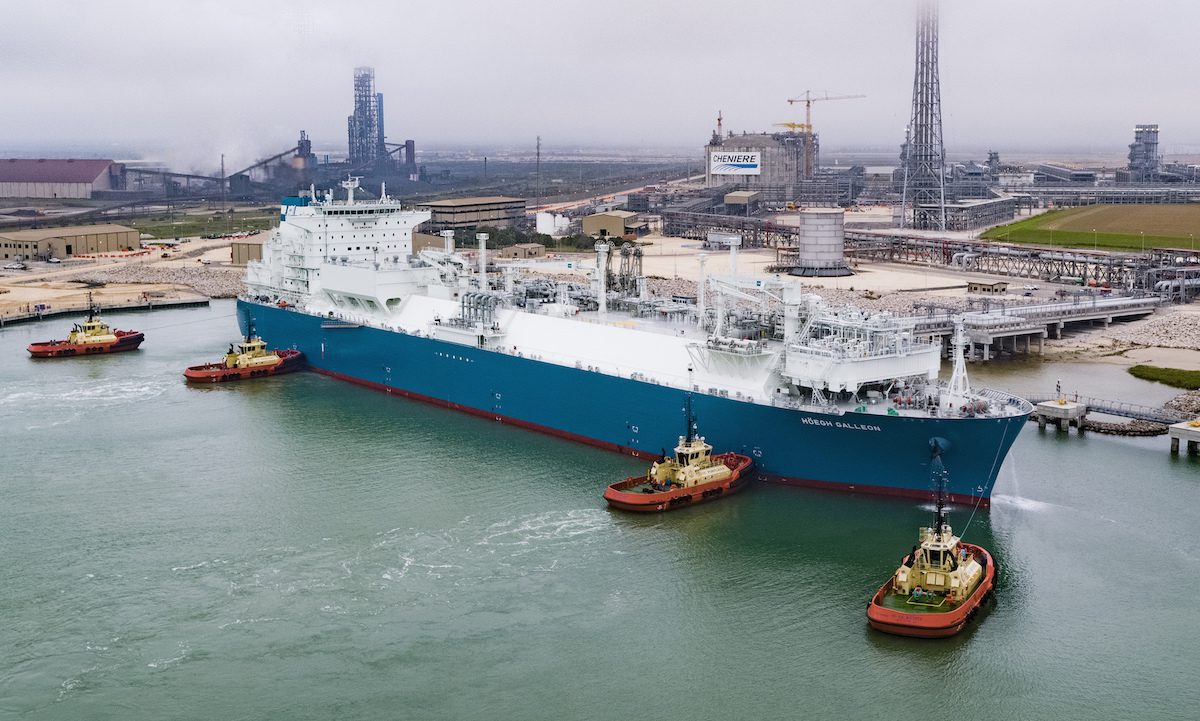A joint study looking into the operational efficiency of Norsepower’s Rotor Sails has found significant fuel savings when combined with optimal weather routing.
For the study, Norsepower worked with leading maritime software and data services expert, NAPA, and Sumitomo Heavy Industries Marine & Engineering (SHI-ME), one of the world’s top shipyards. The companies are announcing the results of the first phase of the project exploring the potential for fuel savings and emissions reduction from a combination of Norsepower’s Rotor Sail solution and NAPA Voyage Optimization on one of SHI-ME’s ships.
Norsepower Rotor Sails is a modernized version of the Flettner rotor that uses the magnus effect to generate forward thrust, reducing overall fuel consumption and associated greenhouse gas emissions. The technology has been used across multiple sectors of the shipping industry for over eight years and has 250,000 operating hours of verified performance data, revealing fuel consumption savings of anywhere from 5-25%.
The initial phase of the simulation project, conducted from December 2022 to March 2023, revealed that the integration of NAPA Voyage Optimization with the Norsepower Rotor Sail could achieve an average emissions reduction of 28% on the New York to Amsterdam Atlantic route. NAPA Voyage Optimization contributed approximately 12% to these CO2 emissions savings.
The project utilized NAPA’s ship performance model, voyage simulation tools, and Norsepower’s real-world performance data. Leveraging nowcast weather data from 2022 and specifications provided by Norsepower and SHI-ME, NAPA’s digital twins simulated the tankers’ performance in selected sea areas.
The study focused on six popular trading routes’ annual voyages, evaluating the estimated CO2 reduction and potential fuel savings of the tankers using NAPA Voyage Optimization and Norsepower Rotor Sails, compared to using NAPA Voyage Optimization alone. Across all six routes, the study identified an average CO2 reduction of 19% when combining NAPA Voyage Optimization with Norsepower Rotor Sails, with NAPA Voyage Optimization accounting for 10% of the emissions reductions. The simulation also examined vessel performance prediction during the design stage, testing the ship’s capabilities under varying sea and weather conditions.
Phase two of the research project, commencing in May 2023, aims to expand on the initial findings and optimize vessel performance with Norsepower Rotor Sails using fleet data. Advanced performance analysis will be conducted to enhance operational efficiency and explore new optimization strategies. SHI-ME intends to develop a new proof of concept for wind-assisted ships equipped with Norsepower Rotor Sails as part of this project.
The project’s findings will contribute to strengthening the business case for investing in wind-assist technology, particularly as the industry faces mounting pressure to decarbonize. By leveraging NAPA’s operational voyage simulation technology, combined with the technical expertise of Norsepower and SHI-ME, the collaborative study provides crucial insights and informed decision-making support, even during the design stage.
“This joint simulation project shows the significant potential for combining wind propulsion with voyage optimization for planet-positive impact,” said Pekka Pakkanen, Executive Vice President of NAPA Shipping Solutions. “At a time when the industry is racing to comply with environmental regulations, digital solutions are enabling greater collaboration with stakeholders across the maritime value chain.”
Jukka Kuuskoski, Chief Sales Officer of Norsepower, emphasized the importance of clean technologies in addressing fuel-saving and environmental concerns. “This performance data on the benefits of adopting clean technologies will give the industry the necessary confidence to invest in decarbonization,” said Kuuskoski
The ongoing project and its discoveries offer valuable insights for the maritime industry as it endeavors to align with sustainability goals.

 Join The Club
Join The Club











